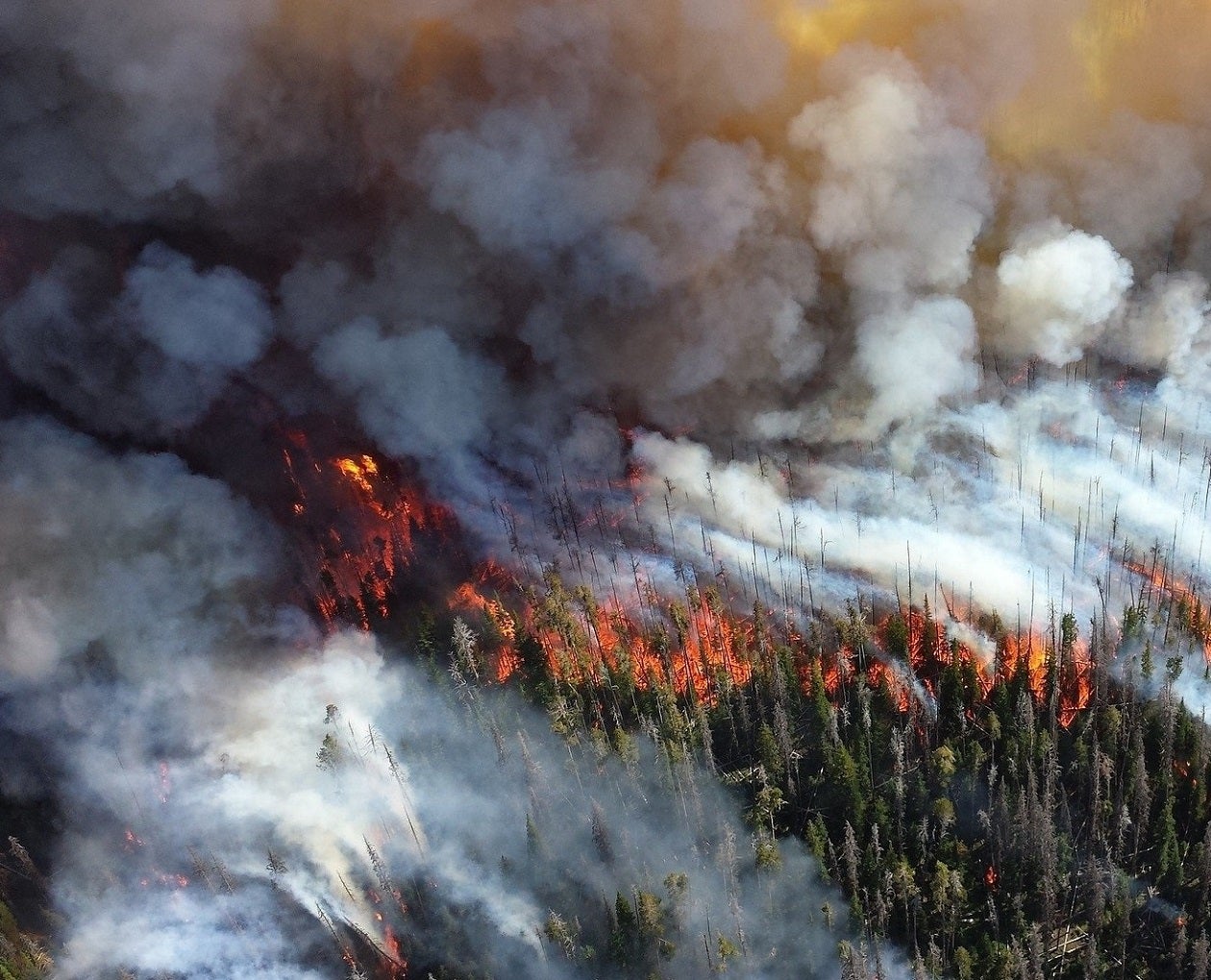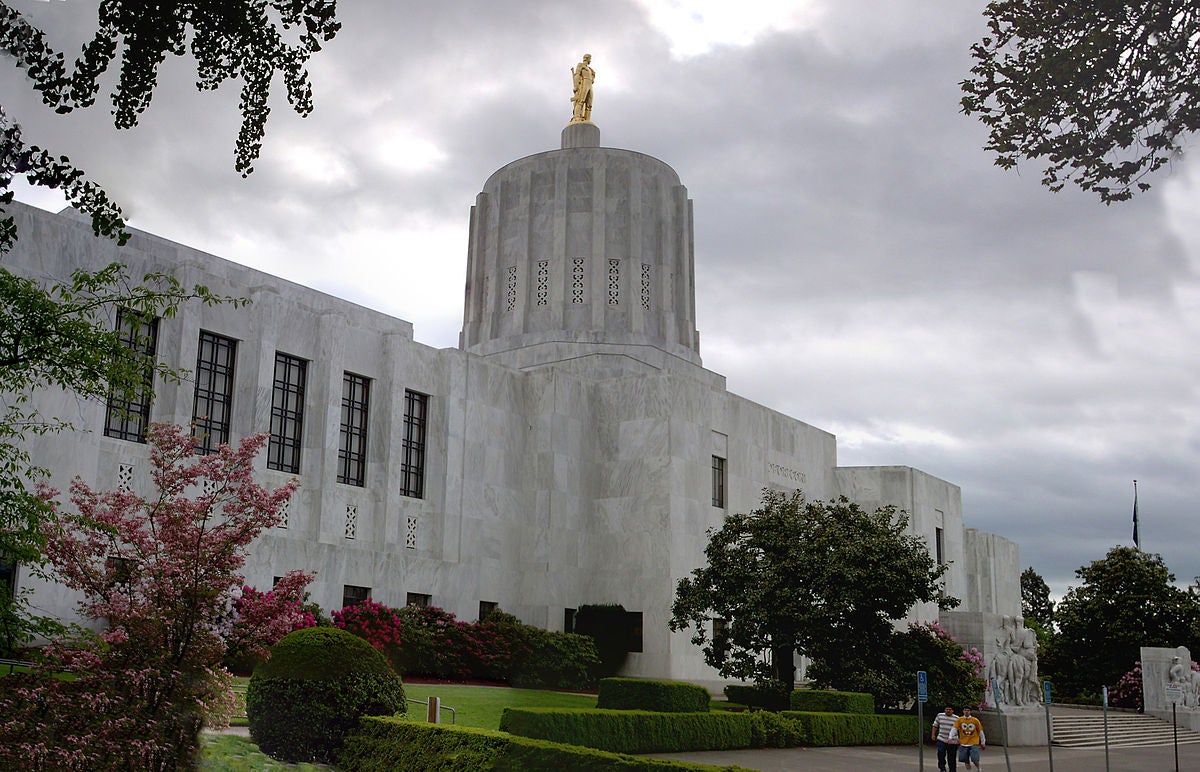
Oregon is finalizing a key pillar of its climate strategy. Will DEQ deliver the climate ambition that Oregonians are demanding?
This past summer, the Pacific Northwest endured record-breaking high temperatures, with Portland reaching 116 degrees F. Hundreds of Oregonians are still reeling from the wildfires of 2020 — one of the most destructive seasons on record for Oregon. And a new study just revealed that Mt. Hood, an iconic Oregon landmark, will have low to no snowpack within the next 35 to 60 years, impacting Oregon’s water supply, winter sports season and other treasured natural resource industries.
Climate change is impacting every part of Oregon, and every action we take (or don’t take) will either solidify a very grim climate future or stop the ever-accelerating impacts of climate change and the immeasurable human suffering that goes with it.
But Oregon regulators have the power to take immediate action to address the climate crisis.
Oregon’s Department of Environmental Quality (DEQ) has a critical opportunity to put Oregon on the right path by enacting an ambitious Climate Protection Program (CPP). The program is intended to be a pillar of the state’s strategy to meet the climate goals established by Governor Brown in 2020, who directed DEQ to cap and reduce greenhouse gas (GHG) emissions from large stationary sources, transportation fuels, and all other fuels consistent with reducing emissions at least 45% below 1990 emissions levels by 2035 and at least 80% below 1990 levels by 2050.
After scorched-earth political tactics by a minority of lawmakers blocked progress in the legislature, Gov. Brown demonstrated how to swiftly and fully mobilize state agencies to deliver the strong climate action that Oregonians overwhelmingly support, without delay. But do DEQ’s proposed rules for the CPP measure up?
The proposed Climate Protection Program fails to meet the moment
DEQ is currently finalizing its proposed regulatory language for the program, which will determine how strong the CPP will actually be. But unfortunately, DEQ’s draft rules for the program fall far short of what is needed to protect Oregonians from the devastating impacts of climate change. As currently drafted, the program has three critical deficiencies:
- The program exempts major sources of climate pollution from a firm, declining limit on emissions. Under DEQ’s proposed program rules, Oregon’s industrial emissions (such as emissions from manufacturing plants) will not be subject to a limit on emissions. And as a second example, gas-fired power plants that export power out of state will be completely unregulated and can continue to pollute without limits. Despite clear direction from Gov Brown to cap and reduce emissions from stationary sources—and to exercise all available authority to do so—DEQ’s proposed regulations would fail to place an enforceable limit on pollution from these major sources. These significant exemptions put Oregon’s ability to meet its greenhouse gas targets in jeopardy, and also leave nearby communities exposed to locally harmful co-pollutants and the impacts of that pollution on their health and livelihoods.
- The program’s approach to alternative compliance could put Oregon’s climate future at risk. DEQ’s proposed program design includes a mechanism called Community Climate Investments (CCIs), which would allow regulated polluters to pay a fee to pollute beyond the level that the emissions cap allows. While those fees would then be used to invest in projects that in theory should reduce emissions elsewhere, there is no regulatory requirement (and therefore no guarantee) that CCIs will actually reduce emissions at the level needed to fully offset the increased emissions from regulated facilities, or that any quantifiable reductions that materialize will be fully additional. DEQ’s proposed approach would allow regulated entities to emit up to 20% above the cap. This creates significant risk that if CCIs are utilized, the state’s current climate goals won’t be achieved. In short, this is a significant offset provision without any of the guardrails on “offsets” that are essential for environmental and programmatic integrity – and that have been adopted in California, the Regional Greenhouse Gas Initiative, and most recently in Washington’s Climate Commitment Act.
- The proposed program is not ambitious enough to guarantee that Oregon’s climate targets will be achieved. EDF worked with Evolved Energy Research (EER) to study the impact that DEQ’s proposed program—alongside existing climate policies—could have on Oregon’s economy-wide emissions. Our analysis found that DEQ’s current proposal falls short of delivering the emission reductions needed to achieve the state’s current 2050 target; with CCI usage, cumulative emissions could be up to 18% higher and the state would face significant risk of missing both the 2035 and 2050 targets.
But even more importantly, Oregon’s current climate targets are insufficient. The new U.S. Nationally Determined Contribution (NDC)—the U.S. commitment to the Paris Agreement—commits to reducing total net greenhouse gas emissions 50-52% below 2005 levels by 2030. This level of climate action is based on the latest science from the IPCC, which shows that the world needs to cut global emissions roughly in half by 2030 and reach net-zero by midcentury in order to avert the most catastrophic consequences of climate change. To meet this urgent, all-hands-on-deck moment, DEQ must target a level of climate ambition that is consistent with both our national climate commitment and the best available science.
DEQ’s proposal falls even shorter when compared to our national goal. Our analysis shows that DEQ’s cap proposal would only result in a 43% reduction in economy-wide emissions from 2005 levels by 2030—lagging behind our national goal—and would not come close to achieving the level of needed to reach net-zero by 2050. However, reaching these targets is both necessary and feasible. EER’s modeling included a “Deep Decarbonization” scenario that illustrates a feasible pathway for Oregon to slash pollution at a pace consistent with the best available science and with our national climate commitment. Additional analysis by EDF found that if DEQ increased the program’s ambition and set the CPP’s caps at levels that will cut covered emissions in half by 2030, economy-wide emission reductions would “catch up” to the modeled Deep Decarbonization pathways and the U.S. goal. By updating the cap to reduce emissions 50% by 2030, DEQ could maintain Oregon’s legacy of climate leadership and cut climate pollution at a pace that matches the ambition of the U.S. NDC.
DEQ faces its last best chance to deliver strong climate leadership this decade
Despite the stresses of still living through a pandemic and enduring the blow of the Delta Variant (which hit Oregon communities hard and Oregon hospitals even harder) Oregonians have made it a priority to let DEQ know they want a strong statewide Climate Protection Program, and that DEQ’s proposed program doesn’t measure up. Over 5,000 public comments were submitted calling on DEQ to strengthen their proposal consistent with the recommendations above, along with dozens of letters to the editor in community papers across the state. Citizens from communities large and small, urban and rural, progressive and conservative took the time to give public testimony at DEQ meetings. Oregonians sent DEQ a strong message: We have no time to waste. This program must be strengthened to deliver real results.
DEQ must deliver the strong, ambitious CPP that Oregonians are demanding by:
- Increasing the ambition of the cap so that Oregon’s economy-wide emission reductions are consistent with the best available science and the U.S. NDC. The CPP must cut climate pollution by at least 50% by 2030 and put Oregon on track to reach net-zero emissions by 2050.
- Eliminating exemptions so that both industrial emissions and emissions from exports of natural gas electricity are covered under a firm, declining cap on emissions, consistent with the level of ambition outlined above.
- Ensuring that the program’s alternative compliance approach does not undermine the integrity of the cap by adjusting the cap downwards to compensate for the number of CCIs used. DEQ must also ensure that CCIs effectively target benefits to the communities that are most impacted by climate change and air pollution by including a specific requirement that the majority of CCI funds be invested in environmental justice communities.
As DEQ makes final updates to the proposed Climate Protection Program, Oregonians will be asking: Do they have the will to act with the urgency our state needs? Oregonians are counting on DEQ to do the right thing and strengthen the program rules to deliver an ambitious, binding, equitable Climate Protection Program.












